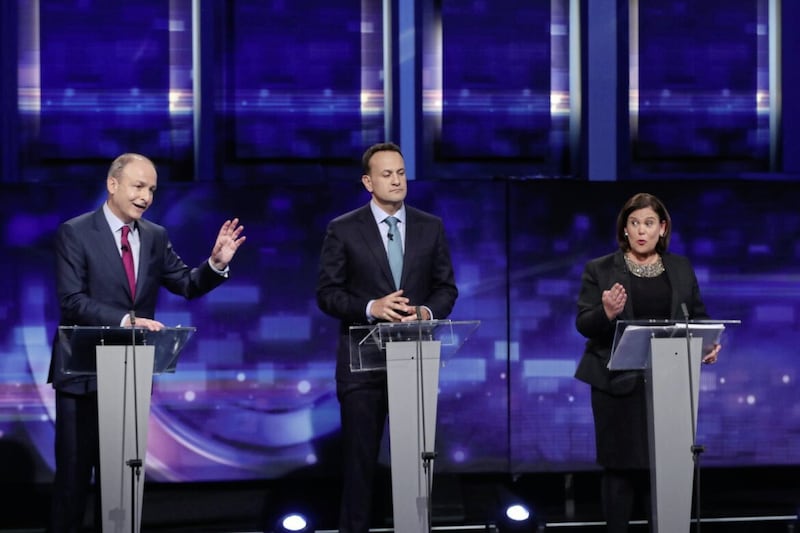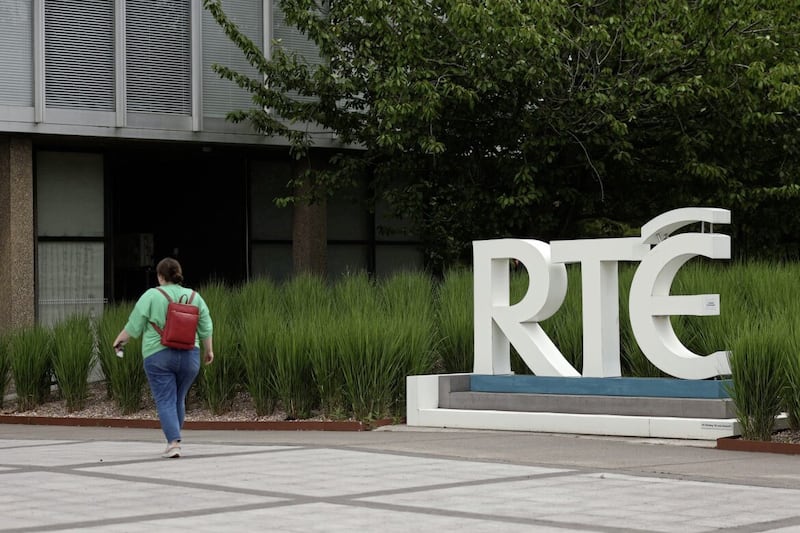WALKING along a street in Dublin last week, a frazzled, weather-beaten poster caught my eye.
The wording was unreadable, but it must have been about two years old because it contained photographs of the 1981 republican hunger strikers and presumably had marked the fortieth anniversary in 2021 of that stark and tragic event.
Although you couldn't decipher the print on the lamp-post, the faces of those who fasted to death for political prisoner status still had a vivid quality.
One was inevitably reminded of how young they were: Thomas McElwee from Bellaghy, whose 40th anniversary took place yesterday, was only 23 years old when he passed away on August 8 of that year. He was the same age as fellow Derry man Patsy O'Hara, who predeceased him on May 21.
Ages of the others who died after fasting for between 46 and 71 days were as follows: Bobby Sands 27, Francis Hughes 25, Raymond McCreesh 24, Joe McDonnell 29, Martin Hurson 24, Kevin Lynch 25, Kieran Doherty 25, Michael Devine 27.
They died one after the other over a period of 107 days and the news of each death was dramatic and disturbing in equal proportion.
How were the circumstances allowed to develop where young people in their twenties, who could otherwise have expected to live at least another half century, felt obliged to put their existence at such fatal risk?
Read more:
- Deaglán de Bréadún: Sinéad O' Connor, Sinn Féin and the courage of conviction
- Deaglán de Bréadún: Rethinking the 'claim to the north'
The British government at the time under Margaret Thatcher decided that they couldn't give de facto political status to those whom they regarded as mortal enemies. But a later British administration ended up in negotiations with the latter-day political counterparts of the hunger strikers and the Belfast/Good Friday Agreement emerged as a result.
Fast-forward to the present where peace holds sway for the most part on this island and we seem to be heading for a dramatic "pinch me, is it real?" moment in politics.
Sinn Féin are the biggest party in the north and Michelle O'Neill is entitled to be First Minister if the Democratic Unionist Party would only lift its veto.
Meanwhile, after a bit of a dip in its poll figures south of the border, the outlook for Sinn Féin in the Republic has improved somewhat.
The latest opinion poll, published in the Sunday Independent at the weekend, showed a rise of three points on the previous Ireland Thinks survey for the paper, from 31 up to 34 per cent, with Fine Gael static on 19 per cent and Fianna Fáil down one point to 18 per cent.
Sinn Féin's showing is a marked improvement on a survey concluded by the same company at the beginning of March which had Mary Lou McDonald and her friends on 29 per cent.
In the last southern general election, held on February 6 2020, Sinn Féin got 24.5 per cent of first preference votes, compared to 22.2 for Fianna Fáil and 20.9 per cent for Fine Gael. In a series of seven surveys concluded by three different polling companies between March 25 and July 18 2020, Sinn Féin scored between 25 and 28 per cent.
Unless there is a major change in the public mood, it seems safe to predict that SF will be the biggest party by a considerable margin after the next general election, which must be held by March 2025 at the latest (most likely in late autumn of next year).
But there seems to be little prospect at present that the party will have an overall majority in Dáil Éireann. Although it might not be the only option, speculation is growing about a Sinn Féin-Fianna Fáil coalition to make up the numbers (Fine Gael leader and current Taoiseach Leo Varadkar has ruled out an alliance with Sinn Féin.)
Although there is no doubt an element in Fianna Fáil that would be uncomfortable with such an arrangement, a significant number might well be prepared to consider such a proposal on the basis of the time-honoured phrase: "What's in it for us?" Or to put it another way: "How many seats would we have at the cabinet table and what ministries would we get?"
With Mary Lou as Taoiseach, the Tánaiste or deputy prime minister would no doubt be the Fianna Fáil leader, currently Micheál Martin, who has also been mentioned as a potential recipient of a big job on the European Commission. He has strongly indicated that he intends to lead FF into the next general election.
Despite its involvement in the peace process and commitment to non-violent politics, some elements in the Irish political system and indeed the community at large would be uncomfortable, at least initially, with Sinn Féin getting the justice and defence jobs in cabinet. It seems inevitable that, if the party went into coalition with Fianna Fáil, the latter would hold those two portfolios.
However, Sinn Féin might well insist on the foreign affairs ministry, as they would no doubt revel in the chance to give their perspective on international issues such as the Israeli-Palestinian conflict.
It would also give their representative an opportunity to stride the world stage, increasing the party's profile worldwide. Cavan-Monaghan TD and former Member of the European Parliament Matt Carthy is current SF spokesperson on both foreign affairs and defence.
Finance would presumably be a job share between current minister Michael McGrath and Sinn Féin's high-profile spokesperson in that regard, Pearse Doherty from Donegal.
SF has focused strongly on issues in relation to housing and health and its representatives in those areas, Eoin Ó Broin and David Cullinane, would be strong contenders to take over at those departments.
The party's spokesperson on workers' rights, enterprise, trade and employment, Louise O'Reilly, could also be given a top post.
There would be plenty of Sinn Féin front-bench TDs to choose from when it came to filling cabinet positions, such as Rose Conway-Walsh, Pa Daly, Mairéad Farrell, Martin Kenny, Claire Kerrane, Pádraig MacLochlainn, Imelda Munster, Donnchadh Ó Laoghaire, Darren O'Rourke and Aengus Ó Snodaigh – the list goes on.







